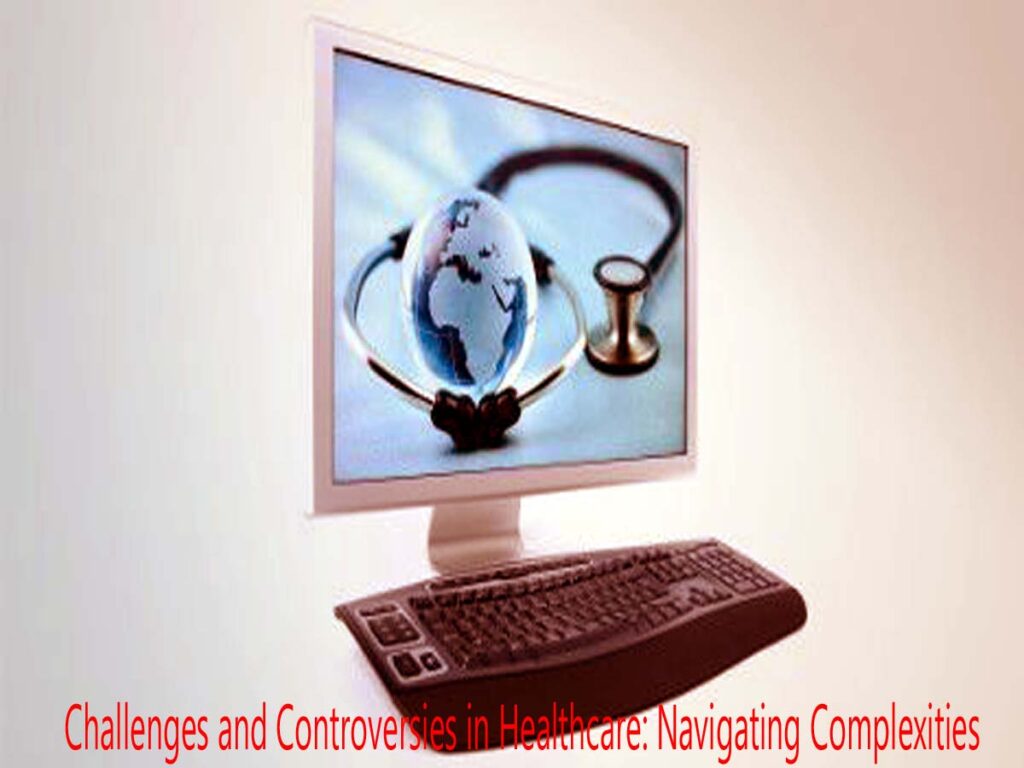A wide range of services are included in healthcare an essential component of human society that works to maintain improve or restore health. It includes a wide range of fields organizations experts technologies and systems devoted to preserving and enhancing community and individual well-being. Health care includes everything from medical treatment to public health initiatives from primary care to specialized services and from preventive measures to curative interventions. We delve into the many layers of health care in this in-depth investigation dissecting its definitions elements difficulties and changing perspectives.
Defining Healthcare: A Holistic Perspective
Fundamentally, healthcare refers to coordinated initiatives and frameworks meant to preserve improve or restore health. It includes not just medical care but also community-based initiatives health education promotion and preventive measures. The field of health care encompasses more than just clinical settings it also takes into account behavioral environmental and social determinants of health.
Therefore a comprehensive definition of health care recognizes its complexity and places special emphasis on the coordination of medical treatment with more extensive approaches to disease prevention and health promotion.
The Components of Health Care: A Multidimensional Framework
The management and provision of health services are facilitated by several interrelated components that make up health care. These elements consist of:
- Primary Care: Primary care is the cornerstone of health care delivery offering people and families comprehensive easily accessible and well-coordinated services. It includes health maintenance acute and chronic disease management and when necessary referrals to specialized services for preventive care. Primary care clinicians such as family physicians general practitioners and nurse practitioners are the initial point of contact between patients and the system.
- Specialized Care: In specialized care medical experts with advanced training and skills in particular domains diagnose treat and manage particular health concerns. This comprises experts who provide particular services catered to each patient’s particular needs such as cardiologists oncologists neurologists surgeons and psychiatrists.
- Emergency Care: Provides rapid assessment stabilization and action in emergency rooms or shock centers for serious medical problems and injuries that pose a threat to life. Emergency care which calls for a quick reaction and expert interventions by medical professionals is essential for saving lives and preventing long-term damage.
- Preventive care: Refers to methods and measures that are intended to lower the likelihood of disease damage and untimely death. This includes immunization tests lifestyle changes health education and environmental interventions aimed at reducing risk factors for illness and promoting health.
- Public health: Through collaborative efforts public health focuses on population-level rudiments of health to prevent disease extend life and promote well-being. Public health activities include society intervention aimed at addressing social determinants of health policy lobby illness prevention programs and epidemiological surveillance.
- Health Information Systems: By making it easier to gather store analyze and distribute health-related data health information systems are important to the delivery of health care. Effective message decision-making and coordination among health care professionals and stakeholders are made possible by electronic health minutes EHRs health information exchanges HIEs telemedicine platforms and health analytics systems.
- Healthcare Financing and Insurance: The funding and repayment of it services are resolute by several systems including out-of-pocket payments profitable insurance plans and state insurance programs. To provide fair access to services and shield people from monetary hardship brought on by medical bills everyone must have access to sensibly priced health care coverage.
- Healthcare Facilities and Infrastructure: The physical facilities furniture and equipment needed to provide healthcare services efficiently are all included in its infrastructure. This include medical imaging centers hospitals clinics pharmacies rehabilitative facilities and the transport and technological roads that enable the provision of it.
Challenges and Controversies in Healthcare: Navigating Complexities
Healthcare delivery is shaped by a multitude of obstacles and disputes that impact accessibility affordability quality and other factors despite its paramount significance. Among these difficulties are:
- Health Inequities: Variations in the quality and results of healthcare access are still present among different demographic groups. Health inequalities are sustained and differences in health outcomes are exacerbated by socioeconomic status and geographic location.
- Increasing expenditures: The burden of chronic diseases aging populations technology breakthroughs pharmaceutical pricing, administrative expenditures and inefficiencies in healthcare delivery are all contributing contributors to the global increase in healthcare costs.
- Fragmentation of Care: In the delivery of healthcare fragmentation is typified by fragmented services inadequate coordination of care and communication gaps between providers which jeopardize patient safety care quality and treatment results.
- Medical Errors and Patient Safety: There are serious dangers to patient safety connected with medical errors including drug errors surgical complications, and infections related to health care. These errors also increase the risk of avoidable morbidity and mortality. Electronic delivery.
- Healthcare Workforce Challenges: Insufficient numbers of physician nurses related health workers and support workers as well as burnout among them put force on the healthcare system and affect the opportune provision of high-quality care.
- Healthcare Coverage and Access: Due to factors like poverty coverage denial geographic distance and cultural obstacles millions of people universally lack access to basic healthcare treatments. prejudice and migrant status.
- Ethical Dilemmas: End-of-life care reproductive rights genetic testing organ transplantation resources share conflicts of interest and the limits of patient autonomy and checkup paternalism are just a few of the multipart concerns that fall under the sunshade of healthcare ethics.
- Technological Innovations: Although they have the potential to improve healthcare delivery diagnosis treatment and legality they also bring up moral legal and societal issues concerning data privacy algorithmic bias health inequities, and the dehumanization of medicine.
Evolving Paradigms in Health Care: Innovations and Transformations
In the face of these obstacles the healthcare industry is rapidly altering due to advances in technology changes in policy changes in the populace and changing public demands. Important developments influencing health care’s future include:
- Digital Health: Advances in telemedicine wearable technology mobile health applications remote monitoring systems and artificial intelligence are transforming the way health care is delivered improving patient engagement and access efficiency.
- Precision medicine: often referred to as personalized medicine allows for more focused efficient and customized methods of diagnosis and therapy by customizing medical interventions and treatments to each patient’s unique genetic environmental, and lifestyle characteristics.
- Population Health Management: By attending to the health requirements of entire populations identifying risk factors putting preventative measures into place, and coordinating care across healthcare institutions population health management aims to improve health outcomes and save costs.
- Value-Based Care: Value-based care models encourage healthcare providers to provide high-value services enhance care coordination and improve patient health outcomes by placing a higher priority on patient outcomes quality of treatment and cost-effectiveness than volume-based reimbursement.
- Health Equity Initiatives: With legislators healthcare organizations and society stakeholders putting targeted interventions into place to address social determinants of health and advance health equity all efforts to promote health equity and lessen the disparity in healthcare access and outcomes are gaining momentum.
Conclusion
A comprehensive and all-encompassing strategy for fostering preserving and regaining health at the individual community and population levels is included in the definition of healthcare. To meet the various health demands and difficulties that people and societies encounter it entails a broad range of services professions technology and interventions.
Health care recognizes the interdependence of numerous factors influencing health outcomes and goes beyond the traditional bounds of medical treatment to include preventative interventions health promotion public health initiatives and social determinants of health. or everything.
FAQ’s
Ques -1 Is it health care or healthcare?
Although healthcare has gained popularity recently both spellings of health care and health care are acceptable. The decision between them is frequently based on organizational or personal preference.
Ques -2 Why is good healthcare important?
Maintaining healthcare avoiding diseases and successfully treating illnesses all depend on access to quality health care. It promotes both individual and societal flourishing by raising life expectancy improving productivity and lowering the financial cost of sickness.
Ques -3 What is the health care system in Pakistan?
Pakistan’s governmental and private sectors make up its healthcare system. Government hospitals and clinics under the direction of the Ministry of Health offer services to the public sector. Different levels of care are provided by hospitals clinics and private practitioners.


